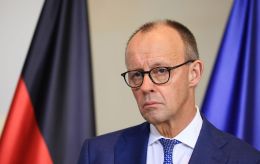ECHR judge Mykola Hnatovskyi: Over 50% of cases against Ukraine relate to war
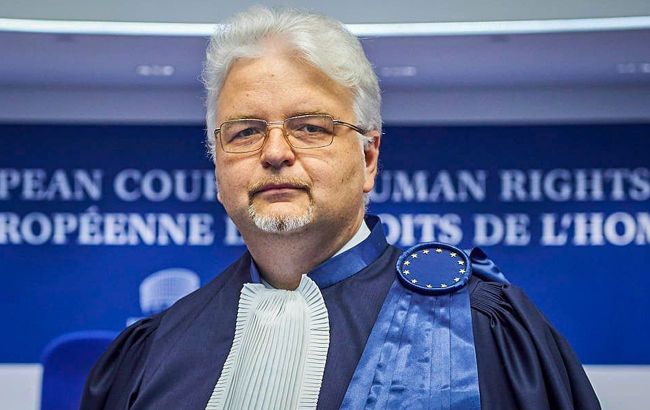 Mykola Hnatovskyi (Getty Images)
Mykola Hnatovskyi (Getty Images)
The European Court of Human Rights (ECHR) plays a key role in holding Russia accountable for crimes committed against Ukrainians. However, there are also cases being heard against Ukraine in the Court. How these cases are progressing, what decisions have already been made, and what to expect in the near future were discussed with Ukraine’s ECHR judge, Mykola Hnatovskyi, in an interview with RBC-Ukraine.
Contents
- ECHR and Russian Church
- Cases in ECHR against Ukraine
- What Ukraine gained from ratifying Rome Statute
- Punishing Putin and Russia
- Progress in major cases against Russia
Holding Russia accountable for its crimes is one of Ukraine's key goals on the international stage. Since 2014, and especially following the full-scale invasion, Ukrainian lawyers have filed numerous lawsuits against the aggressor state with the International Criminal Court (ICC) and the ECHR. These cases are not only important for punishing Russia but also provide a legal foundation for more proactive action by Ukraine’s allies.
"ECHR rulings help create a legal basis without which European states won’t go far. Once they have this foundation, they feel much more confident. And they can always respond to their opponents: 'We are acting this way because it’s necessary to restore international law, as its violation has been confirmed by a competent international court, in this case – the ECHR,'" explains Judge Mykola Hnatovskyi in an interview with RBC-Ukraine.
Before becoming an ECHR judge, Hnatovskyi was president of the European Committee for the Prevention of Torture and worked as a human rights expert for the Council of Europe, the UN, and the OSCE.
Alongside the progress in lawsuits against Russia, Ukraine itself still faces several long-standing, purely domestic human rights issues. How the war has changed this, what new cases might arise against Ukraine in the ECHR, and the status of lawsuits against Russia were all discussed by Mykola Hnatovskyi in the interview with RBC-Ukraine.
ECHR and Russian Church
– The Verkhovna Rada recently passed a law banning the Russian Orthodox Church (ROC). Are there risks of lawsuits being filed against Ukraine in the ECHR by members of this church?
– It’s hard for me to comment on risks, because much will depend on the practical implementation of this new legislation, and I certainly cannot assess it in the abstract. We need to see what this means in practice. Of course, Ukrainian courts will play the first and decisive role here. If problems remain after Ukrainian courts resolve these issues, then the ECHR will step in. But at this stage, it’s too early to say anything definitive.
However, I can say that such cases from Ukraine are not new for the ECHR. A well-known precedent was set back in 2007 with the case of "St. Michael’s Parish v. Ukraine," where the issue concerned the authorities' refusal to register amendments to the statute of a religious community transitioning from the Moscow Patriarchate to the Kyiv Patriarchate.
That case provided a lot of valuable insights. In my opinion, the ECHR laid out the limits of state intervention in religious organizations and the criteria it will use in such cases. This case, along with many others, offered significant guidance, which specialists are aware of. I hope they take this into account when making both legislative decisions and applying this legislation in practice.
– Are there already cases brought by the ROC (Russian Orthodox Church)?
– So far, I’m not aware of any communicated cases on this topic. There are complaints related to internal disputes within communities, such as transitions of specific parishes from one church jurisdiction to another or property issues, which occasionally arise.
– What about cases involving Russia’s actions in the occupied territories, particularly in Crimea?
– All actions by the Russian Federation on Ukrainian territory are subject to consideration by the ECHR on two levels.
There are inter-state complaints that have been filed by Ukraine. You mentioned Crimea: the Grand Chamber, the highest judicial body of the ECHR, issued a ruling on Ukraine's complaints regarding Crimea on June 25 of this year.
This case, among other things, includes issues of administrative practices interfering with rights guaranteed by Article 9 of the Convention, which concerns freedom of religion. Specifically, it addresses administrative practices targeting religious leaders who do not belong to the Russian Orthodox Church, various attacks on religious institutions, the confiscation of religious property, and more.
The court found that such practices existed on the part of the Russian Federation, practices that violate the European Convention on Human Rights. Another major inter-state case, "Ukraine and the Netherlands v. the Russian Federation," is currently in the stage of consideration. The hearings have been held, and the court is now deliberating on further steps, including a decision on the merits of the case.
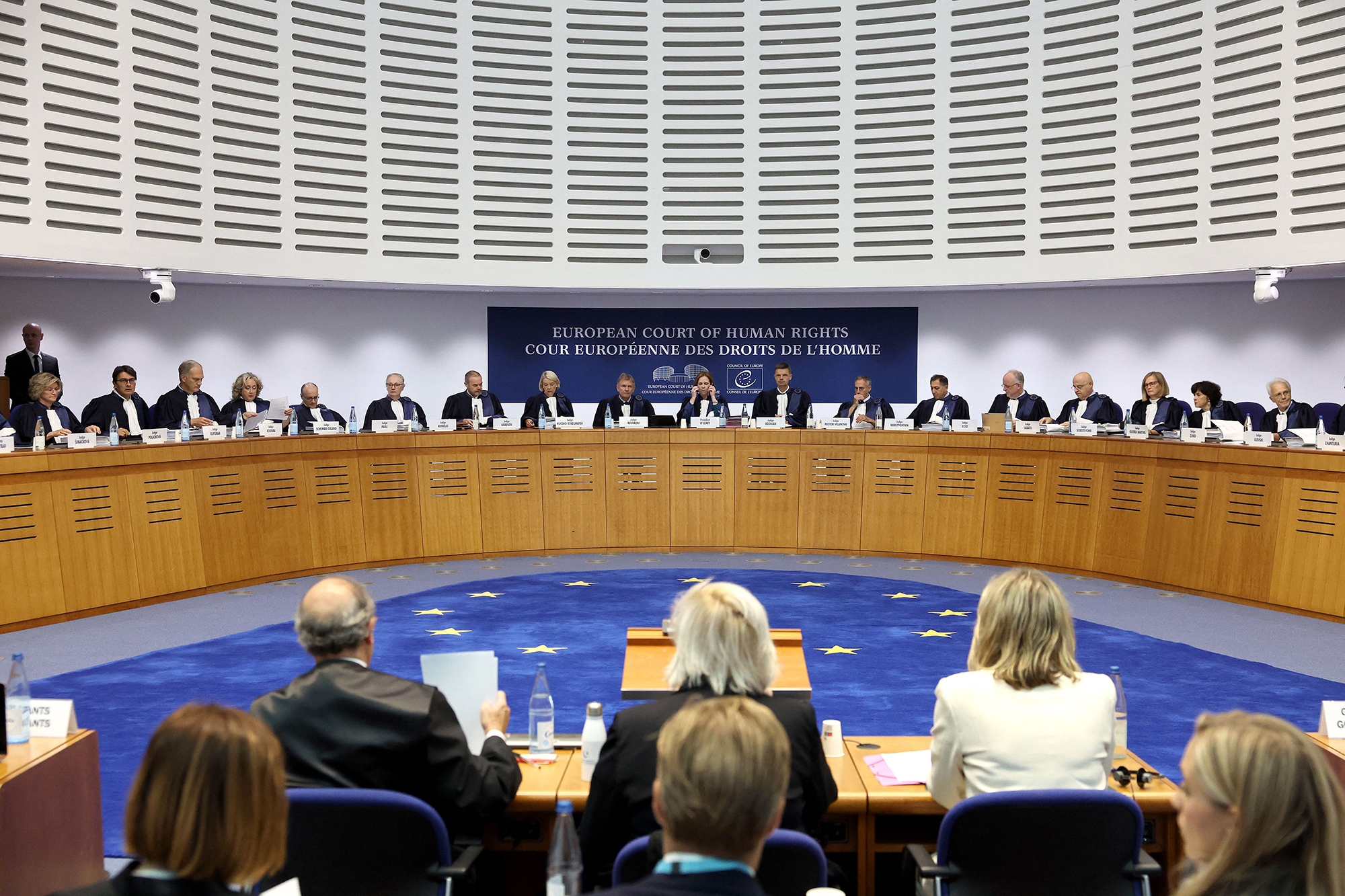
ECHR session (photo: Getty Images)
At the second level, there are individual claims, of which there are many. With the resolution of inter-state cases, individual cases will also move forward more quickly because inter-state cases help clarify whether certain administrative practices exist. Based on the conclusions of these cases, it’s easier for the court to decide individual claims, though there may still be unique issues that require more careful review by the ECHR.
Cases in ECHR against Ukraine
– What about cases brought by Ukrainian citizens against Ukraine? What is the current dynamic there?
– It’s clear that there was a significant drop in the number of complaints filed by Ukrainians against their state after the start of the full-scale invasion, for obvious reasons. However, this flow has now recovered to about 80% of the pre-invasion level of complaints regularly submitted by Ukrainians against Ukraine.
Looking at the occupied territories, this roughly corresponds to the overall percentage.
The total number of complaints pending against Ukraine has decreased somewhat. Today, there are around 7,800, whereas two years ago there were about 10,500.
More than 50% of the cases currently against Ukraine concern the war and related events, not just from 2022 but also dating back to 2014. Many cases were essentially paused pending decisions by the ECHR’s Grand Chamber, as we’ve discussed, setting important precedents.
The remaining complaints are fairly traditional. Complaints against Ukraine are typically quite standard, often related to unresolved issues within the legal system, and the ECHR has addressed these problems many times. Therefore, the court continues to deal with them, but in a more streamlined manner.
– Does the ECHR take into account the realities of a country in a state of war, which has certain human rights restrictions?
– Absolutely. Each case is reviewed in light of the circumstances in which it unfolds. Clearly, where relevant, this is considered. If you're referring to Ukraine's declaration of derogation from certain obligations under the European Convention on Human Rights, specifically the derogation under Article 15 of the Convention, so far there has been no case in which this derogation has affected the outcome of a decision by the ECHR.
Up to now, there hasn’t been a need for it. That doesn't mean the need won't arise, or that it won’t be considered. The court will examine this in each specific case.
– We have a practice where we sentence collaborators or spotters, but they are released on bail. Their defense, during the hearing on preventive measures, refers to ECHR case law. How do you think the ECHR would respond if we don’t follow their practice in these cases?
– I can’t generalize, and it would be wrong to do so: in some cases, it may be ignored, while in others it may not. The case law under Article 5 of the Convention regarding Ukraine is well-known and is reflected in the 2012 Criminal Procedure Code of Ukraine, which was largely built around ECHR practices.
However, how this is implemented is a different matter, and again, each case is reviewed individually. The Supreme Court formulates its legal positions based on ECHR practices, and Ukrainian law itself requires this.
Detention as a preventive measure, under the logic of the European Convention on Human Rights, is an extreme measure, used only when necessary for the sake of a criminal investigation. Every such decision must be justified. In this regard, the requirements of paragraph 3 of Article 5 of the Convention are strict.
Ukraine has long had a systemic problem with failing to meet these requirements. While this issue has diminished over time, as seen in the statistics, it hasn’t disappeared. The approaches developed by the ECHR will continue to be applied. Every extension of detention must be justified. With each new review, the justification becomes more difficult because every time, authorities must explain why the person should remain in custody.
Here, there is an element that is traditionally difficult for society to understand, though all lawyers are aware of it. Public consciousness often conflates punishment for a crime—where guilt has been proven in court—with a preventive measure, where a person is only suspected and guilt still needs to be proven.
Thus, when a crime stirs strong emotions—as many do, and even more so now with the war—the natural reaction is to jump to punishment without trial or proof of guilt. But that cannot happen. In every case, it is necessary to justify why a person should remain in custody while awaiting a verdict.
Additionally, and I say this not only as a judge but as someone who has worked extensively with detention facilities in Europe: the resources for places suitable for holding individuals in custody are limited.
This is also a responsibility of the state — to use such places wisely. They should be reserved for those who truly need to be there—those whose release would jeopardize the investigation, pose a threat to witnesses, or result in their flight. These are well-known reasons. This must be evaluated realistically at every review. Simply sending everyone to pre-trial detention is a completely unworkable strategy.
Moreover, let's not forget that Ukraine has a systemic problem with detention conditions, particularly in pre-trial detention centers. We have an outstanding pilot judgment against Ukraine in the case of "Sukachov v. Ukraine". From what I can see in the statistics of complaints about detention conditions, the situation does not appear to be improving.
Detention conditions fall under Article 3 of the Convention, which concerns human dignity. And there are no compromises on this in Europe. Some may wish there were, but there aren’t and won’t be.
This also has very practical implications for Ukraine. It is known that certain countries currently have a practice of refusing Ukraine’s extradition requests for individuals accused of serious crimes. They point to the fact that these individuals would be sent to Ukrainian pre-trial detention centers with poor conditions, and European countries are legally prohibited from sending anyone to what they know would be inhumane conditions.
– Regarding the implementation of judgments won by Ukrainian citizens against the state of Ukraine — are there any statistics on how these are being fulfilled by the state?
– First, I should make a clarification: the European Convention on Human Rights separates the functions of the Court, which decides cases, and the Committee of Ministers of the Council of Europe, which oversees the enforcement of these decisions. So, the issue of enforcing judgments is a matter for the Committee of Ministers, not the Court. Therefore, the information I have is not exclusive—it’s public and available on the Committee’s website.
Enforcement occurs on several levels. The most basic level is financial compensation. The ECHR awards a certain sum, referred to as "just satisfaction" under Article 41 of the Convention. The state pays that sum.
But does this mean the judgment has been fully implemented? Often, it does not. While payment is a necessary part of compliance, it’s only one aspect. Each judgment can also include individual measures—direct solutions for the applicant’s situation, resolving the issue that led them to bring the case to Strasbourg in the first place. There are also general measures.
It’s important to understand that the Strasbourg system, including the ECHR and the Committee of Ministers, has a supplementary function—it helps national bodies. It cannot replace the normal functioning of national courts or systems of justice.
The role of the Strasbourg bodies is to help states set up systems that work without constant recourse to Strasbourg. Repeating the same judgment thousands of times is unsatisfactory. Yes, the state might continue paying out compensation, but the problem remains unresolved. This is not a sustainable solution.
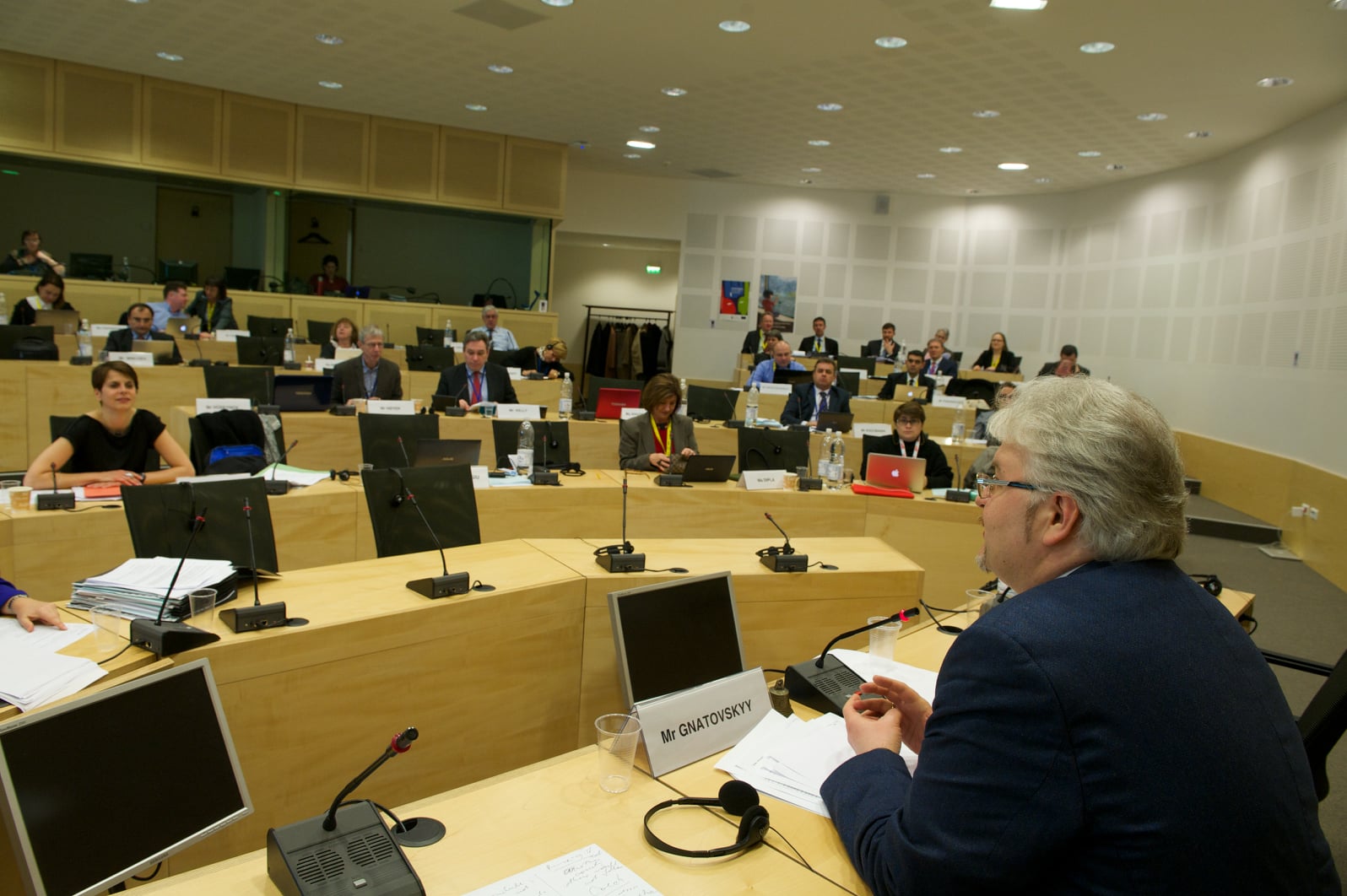
Mykola Hnatovskyi during his work at the European Committee for the Prevention of Torture (photo: Facebook of Mykola Hnatovskyi)
I am not saying that the funds being spent from the state budget are a total loss or a pure waste. These expenditures do not contribute to improving the situation; they don't address, for instance, the improvement of court functioning, better detention conditions, or other infrastructure-related issues.
Are these significant amounts of money? I checked the Committee of Ministers' website and their report for last year. We're talking about approximately €2 million from the state budget. The sum may seem large, but in the scale of the entire country, it's hard to say. However, that's not the point.
The issue here is not whether we can buy our way out of problems. It’s about why Ukraine is even participating in this. Is it just to pay fines, small or large, whatever they may be? No, it’s to make the state function better and to genuinely uphold human rights. Strasbourg’s role (home to the European Court of Human Rights and the Council of Europe headquarters) is to show us where resources can be used to improve and what needs fixing. This is where we’ve traditionally had problems.
What Ukraine gained from ratifying Rome Statute
– Ukraine recently ratified the Rome Statute of the International Criminal Court. What changes does this bring for us in terms of international courts against Russia?
– It doesn’t change much, to be honest. From the perspective of my institution, it changes nothing because it’s a different organization with different functions. But when looking at international criminal justice, which is highly sought after in Ukraine, it becomes clear that the Ukrainian society naturally wants justice and punishment for those who committed crimes against international law on Ukrainian territory and against Ukrainians. In this sense, ratification offers Ukraine more opportunities for cooperation with the International Criminal Court (ICC).
Ukraine now can vote and influence the agenda of the Assembly of States Parties to the Rome Statute. This body essentially sets the development vector for the entire system of international criminal justice. Ukraine didn’t have this opportunity before.
By ratifying the statute, Ukraine also gained procedural rights. It can now refer cases to the ICC, which it couldn’t do before as a non-party to the Rome Statute. Even during the full-scale invasion in 2022, Ukraine remained in a passive position as a petitioner. It was 43 member states of the Rome Statute that requested the ICC to act urgently. Ukraine wasn’t among them.
Additionally, this has slightly improved the diplomatic situation for Ukraine. After all, Ukraine seeks justice, and we’ve been publicly, and I believe privately, asked: "If you want to participate in international criminal justice, why haven’t you fully joined?" Ukraine agreed to the ICC’s jurisdiction back in 2015, but there was no clear answer to why we weren’t actively participating. There was no rational explanation.
With ratification, there will be more opportunities for Ukrainians to work in the ICC’s Secretariat. Perhaps one day, even a judge from Ukraine could be elected, though that’s not easy. There are 18 judges and 124 member states. The competition is fierce.
Moreover, Ukraine has expressed its desire to contribute to the development of international law. Ukraine understands that, unfortunately, the guarantees under international law weren’t sufficient to prevent Russia’s aggression, including the large-scale invasion in 2022.
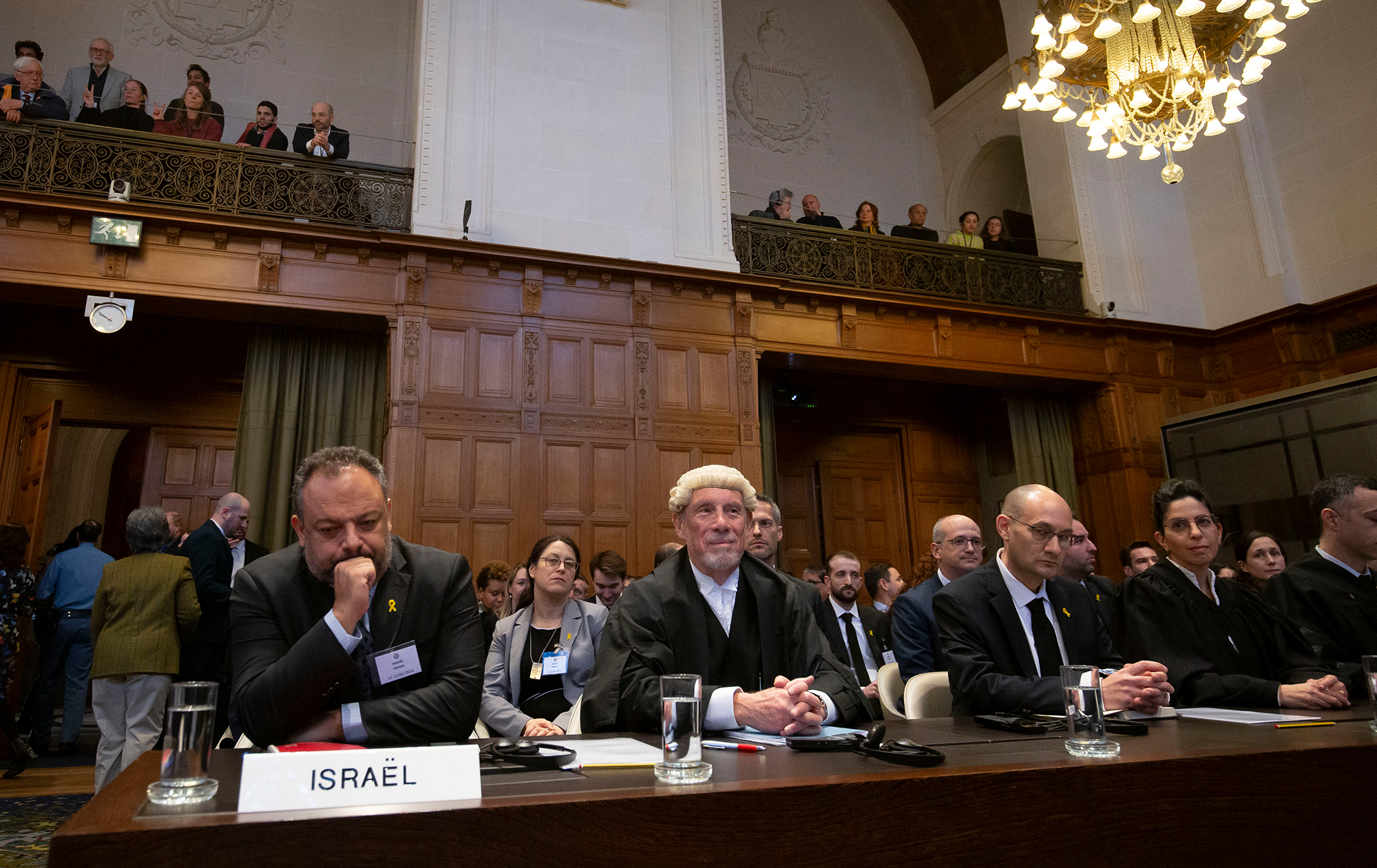
What the ICC hearings look like (photo: Getty Images)
In March 2022, Ukraine proposed creating a special tribunal for the crime of aggression in response to the invasion. Skeptical states questioned Ukraine’s moral right to propose such a tribunal when it hadn’t even joined the Rome Statute, which over 120 states had ratified. They asked: "What moral right do you have to propose new organs if you’re not participating fully in the existing system?"
It was also clear from the Association Agreement with the European Union, not to mention Ukraine’s current candidacy for EU membership, that Ukraine had committed to ratifying the Rome Statute. Important bilateral security agreements signed by Ukraine also contained this commitment. So it was evident that this step had to be taken.
Punishing Putin and Russia
– Is there any way to break the deadlock regarding Putin? Executing the arrest warrant seems impossible.
– I wouldn’t say it’s impossible. The fact is, Putin traveled to a Rome Statute member state (Mongolia), which was legally obligated to arrest and transfer him to The Hague. There’s no debate about that obligation. The country itself, I believe, isn’t disputing it. They seriously claim: "Well, how could we when we’re dependent on them?"
These arguments, to put it mildly, are not legal. It’s disappointing. It means the country has violated its obligations and will face some level of accountability. However, it likely believes that this accountability will cost less than addressing the issue properly.
Yes, one country acted improperly. But that doesn’t mean the obligation doesn’t exist for others. We haven’t seen this individual traveling the world extensively. He managed to visit Mongolia, and he’s quite proud of that...
– In the case of the European Court of Human Rights (ECHR), how can we ensure partial compliance with rulings against Russian leadership, particularly in cases brought by ordinary Ukrainians?
– The ECHR deals exclusively with state responsibility. The Court essentially answers one question: Did the state fulfill its obligations under the European Convention on Human Rights? The answer can lead to various consequences.
I’ve already mentioned that there is a separation in the convention between the judgment of cases and their enforcement. Regardless of the immediate prospects for enforcement, the primary goal is to stop illegal activities and ensure they don’t recur. Accountability includes restitution, compensation, and other forms of redress. This is all mandated by international law for breaches of obligations.
Regardless of how long the process takes, the legal framework will always exist.
We’re in Europe, and our main allies are Europeans. So-called "Western states" in the broadest sense. These are states that uphold the rule of law and claim to be guided by it. They decide whether to support Ukraine and how to support it.
When there are ECHR rulings, they provide a legal basis for decisions on whether to support Ukraine, including military support. Although the ECHR doesn’t directly address these issues, its rulings lay the groundwork.
For example, states make decisions about freezing and seizing Russian assets and using them to support Ukraine. ECHR decisions contribute to creating the legal basis without which European countries wouldn't go far.
Once they have this foundation, they act with greater confidence. They can always respond to critics: "We’re doing this because international law needs to be restored, and its violation was confirmed by a competent international court, in this case, the ECHR."
– Let’s talk about interstate matters. The ECHR recently confirmed that in 2014, Russian troops were in Crimea and Donbas. How does this fact help us, and can it expedite the consideration of other cases related to Russian aggression?
– International cases at the ECHR are typically considered in several stages. The first stage is admissibility, the second stage involves the merits of the complaints, and the third stage is often related to determining the amount of so-called just satisfaction, i.e., financial matters.
Even at the stage of decisions on the admissibility of these complaints, after the first stage, in the "Crimea" case, and in the second major case concerning eastern Ukraine, to which the complaint about the events of 2022 was also attached, important facts were indeed established, including from which moment Russian troops were present, and so on.
These are the most significant parameters for the consideration of individual complaints, which will undoubtedly accelerate in the coming period. This period has already begun.
Progress in major cases against Russia
– If we talk about the case 'Ukraine and the Netherlands against Russia' at the ECHR, what stage is it at?
– The latest event was on June 12 of this year. Hearings took place in which the respondent state was absent, but the states that brought the case to the ECHR, namely Ukraine and the Netherlands, were present.
They presented their demands and answered the judges' questions. Representatives from 26 other member states of the Council of Europe, who joined this case as third parties, were also present and discussed relevant legal positions with the court, answered questions, and made statements. There was a common position from 26 states. Then, with separate positions, Great Britain and Poland decided to speak out. The judges began discussions. As they say in Ukrainian courts, they went into a deliberative room. That is, discussions about what the decision in this case should be regarding the merits are ongoing. We hope that a decision will be reached within a reasonable time frame.
This involves enormous work, a vast volume of evidence and materials, and very complex legal issues. Therefore, this is not a decision that can be made quickly in the format of a Grand Chamber with 17 ECHR judges.
But I would like to be optimistic and think that the court can make this decision relatively promptly. It will consist of hundreds and hundreds of pages; it will truly be a decision that holds not just legal but, I would say, historical weight.
– Regarding the 'Crimea' case. On June 25, the ECHR issued a final ruling in the lawsuit 'Ukraine against the RF' concerning Crimea and established numerous violations of human rights by Russia in the occupied peninsula. What practical benefit does such a decision provide? And what’s next?
– For the court, the next task is individual complaints. There are many hundreds of them, and they have already been communicated to the Russian Federation. Accordingly, that court is obliged to give them (Russia - ed.) time to comment on them; whether they will do so or not is their business. Then the court will move on to resolving them.
Additionally, the "Crimea" case will likely also have a third stage at the interstate level—resolving the issue under Article 41 of the convention, i.e., the issue of just satisfaction, a financial issue. This is because the ECHR stated in its substantive decision this June that the question under Article 41 is not ready to be considered together with the merits of the case. There needs to be calculations, and I understand that calculating is, frankly speaking, not simple.
– So this might also drag on?
– International justice is generally slow. This is a problem, obviously. No one likes it. Compared to how it previously considered interstate cases, the ECHR is now examining these cases much more intensively, because the court’s leadership clearly expressed the position during a plenary session in the spring of 2022 that the consideration of such cases is a priority issue for the so-called European public order. That is, for Europe, this is a priority.


